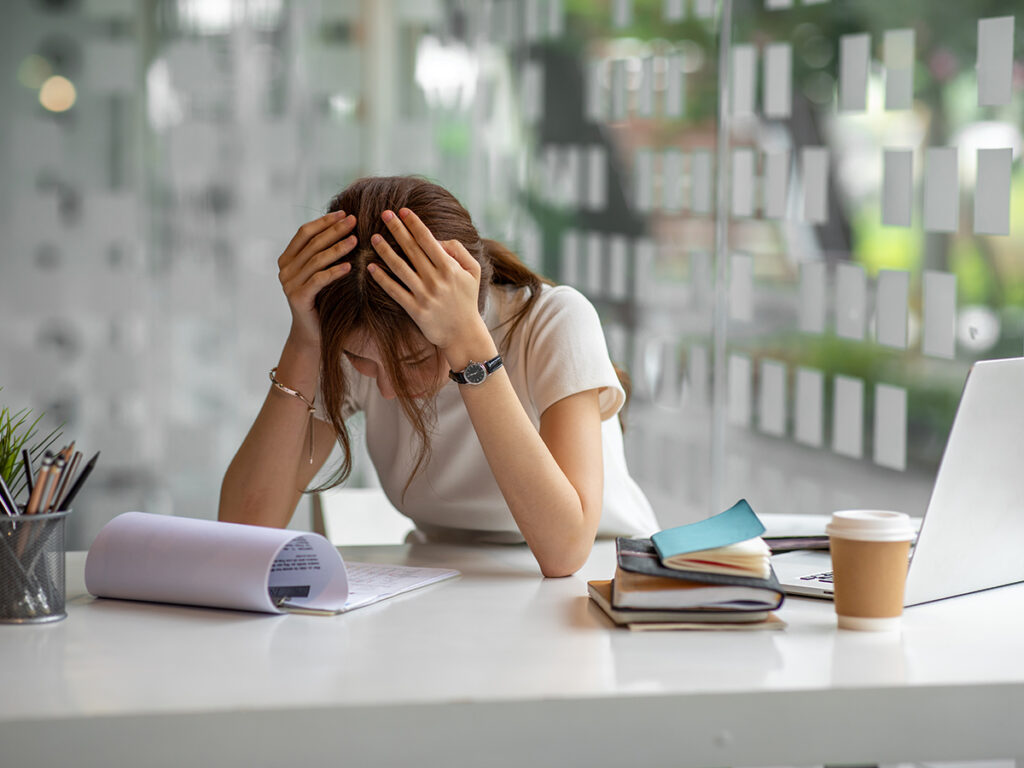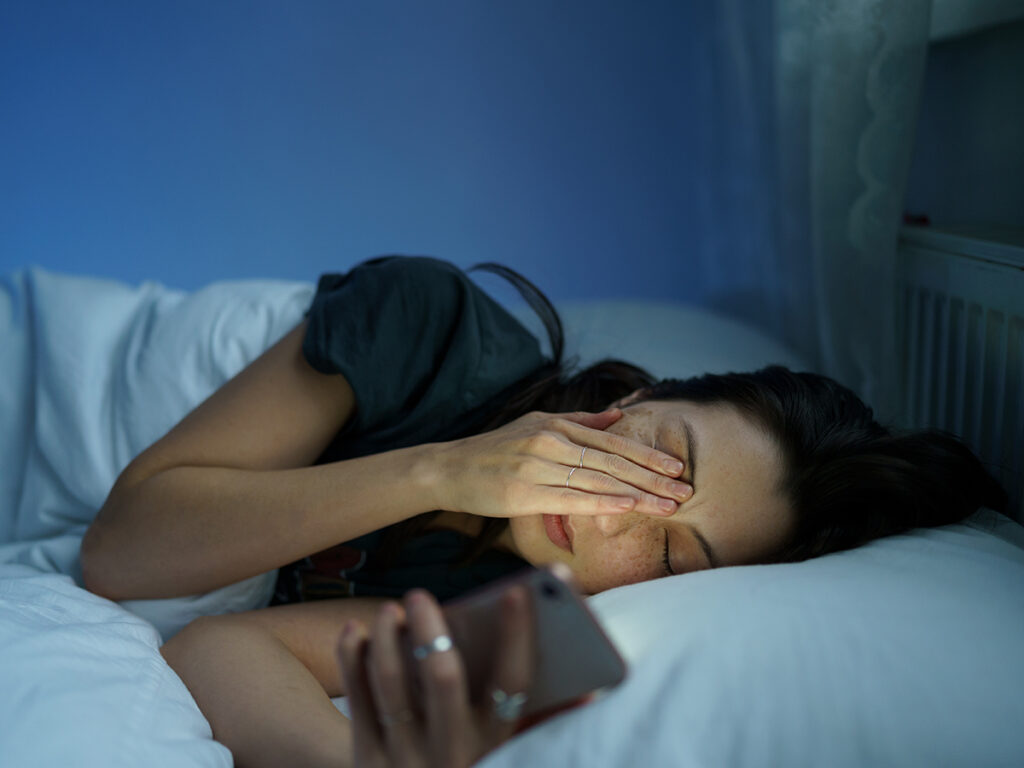Leading sleep expert, Olivia Arezzolo, breaks down the most common culprits for our bedtime anxiety, and why it’s so important to address them.
Laying in bed, mind on an endless loop, ruminating about a deadline that’s quickly approaching, stressing that you can’t sleep, worried about how tired you’ll be tomorrow… We’ve all been there.
And while it feels like everyone else is sleeping easy– they’re not. A 2022 study found only seven per cent of Aussies get a good night’s sleep, and stress is the leading cause of sleeplessness, affecting 53 per cent. The symptoms mentioned above are trademarks of bedtime anxiety, and if you’ve been wondering why it’s happening, and how to overcome it, this article is for you.
While this list is not exhaustive, here are three common culprits for bedtime anxiety:
#1. Insomnia
If you’ve struggled with sleep extensively in the past, clinical research shows you’re over 17 times more likely to develop an anxiety disorder. This may be particularly noticeable in the evening because this is the time when you are preparing for, and getting to, sleep. As such, it may bring up distressing memories, or issues you still haven’t resolved.
#2. Overwhelming, excessive responsibilities.
If we are overridden with seemingly endless duties throughout the day, come evening, we may find it hard to switch off– we feel like a failure like we are not good enough, and that we are letting ourselves and others down.
#3. Excessive caffeine
Though we joke about it, that second, third or fourth cup of coffee through the day could very much be responsible for your racy mind come evening– the time you are left with little to funnel all your extra energy into. As such, you may start ruminating about the smallest of matters, simply to give your brain something to fixate on.

What can bedtime anxiety look like?
Bedtime anxiety has many hallmark signs: finding it hard to switch off, rumination, thoughts on an endless loop, feeling a compulsion to distract yourself with TV or social media, waking frequently through the night, excessively needing the bathroom sweating, hot flashes, feeling tense and agitated, taking longer than 30 minutes to fall asleep, and sleeping lightly.
How can we manage it?
Ideally, you need to address bedtime anxiety from multiple angles, such as sleep psychology, bedroom design, diet and supplements. By doing so, you will help lower your overall levels of anxiety (trait anxiety), as well as your feelings of anxiety when stressed at night (state anxiety). Specific recommendations include:
Sleep psychology
Proactively reduce bedtime anxiety by avoiding situations that bring it on, such as social media. Though it may feel it’s ‘relaxing’, research shows that when we spend over three hours a day on our social platforms, we are twice as likely to experience poor mental health, including anxiety. Given our day-to-day busyness, no doubt these hours would be those in the evening. Replace your scroll with a mindfulness activity, like meditation. Clinical evidence indicates that practice can lower cortisol levels, the hormone that rises when we are anxious and contributes to the symptoms mentioned above.
Supplements
Part of your bedtime routine should be a magnesium supplement. It’s the primary mineral to relax the body and increases the calming neurotransmitter hormone GABA, so we feel more at ease. Clinical research reflects this too: magnesium can reduce anxiety by 31 per cent. Naturally, always consult your health professional first.

Bedroom design
Creating a calming environment can be helpful for bedtime anxiety too. Remove all melatonin-suppressing blue light, alongside anything that reminds you of work – seeing your business laptop or daily notes acts as a cue, eliciting further thoughts of deadlines, your boss and that difficult client. Instead, transform your bedroom into a sleep sanctuary with a red night light and white noise machine. White noise can help slow brain waves from busy alpha to slower theta, so we naturally feel more relaxed; and can reduce the time taken to fall asleep by 38 per cent, as noted in a clinical trial. One device offering white noise and a red night light is Homedics’ SleepSound Light and Sound Machine.
Diet
A third pillar to incorporate in your anti-anxiety remedies is diet. With caffeine being a potent stimulant, it’s one of the worst triggers for anxiety, especially in high amounts. Ideally, work towards a net consumption of zero, reducing gradually or going cold turkey. However, if that sounds like a disaster waiting to unfold, opt for black or green tea. While still having a small dose of your beloved caffeine, these teas also contain the calming ingredient l-theanine.
Second, load up on omega-3-rich foods such as flaxseeds, chia seeds, and walnuts; plus your favourite fatty fish like tuna, salmon and sardines. Evidence indicates a diet low in omega-3s correlates with anxiety.

Bedtime anxiety doesn’t need to derail your evenings, you just need to arm yourself with anti-anxiety remedies and use them accordingly.
After personal challenges with anxiety, I know, that when unaddressed, it can literally ruin our lives. On the other hand, when we recognise our capacity to create change, and also, reach out to our trusted health professionals for additional support, we completely revolutionise our health and our lives.
We can be our best selves, inside and out, and that’s what we are all here for, right?
By Olivia Arezzolo
Images: Shutterstock







